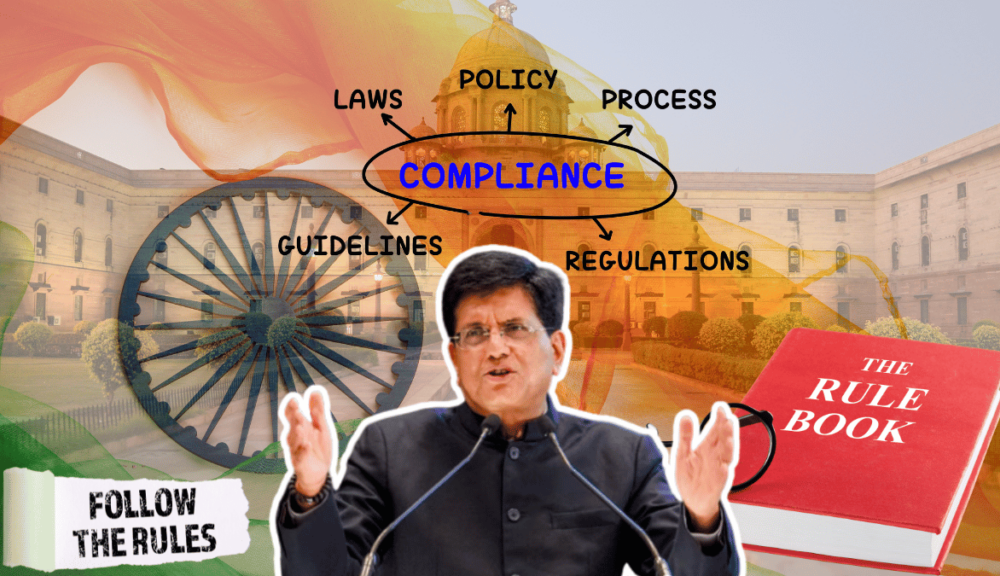Health
Influencers, You Must Know these New Rules and Guidelines!
Read what the Ministry of Consumer Affairs issued for health and wellness celebrities and influencers to create a safer online space.

You are scrolling through your favourite influencer’s profile and see a glowing endorsement of a magical health drink that boosts immunity or cures fatigue. With our health and gut conditions, it sounds tempting. But wait, how do you know if it’s legit? The Ministry of Consumer Affairs thought about the same and ensured that what we see online must be backed by facts, not just fancy captions and viral reels.
Transparency is no longer an option but a necessity in digital promotions.
Who’s Affected? Influencers or Viewers?
The new guidelines apply to all celebrities and social media influencers who share health-related advice or promote wellness products. They must prove their qualifications if they introduce themselves as experts, certified trainers, nutritionists, or medical practitioners. This means holding and stating their qualifications to make any health-related claims.
For example, a certified nutritionist could say, “As a certified expert, I recommend…” Without such disclosures, followers must consider that advice misleading or harmful.
India’s Ministry of Consumer Affairs, Food and Public Distribution (MCA) has several responsibilities.
- Consumer protection: The MCA implements the Consumer Protection Act of 2019, the Bureau of Indian Standards Act of 2016, and the Legal Metrology Act of 2009.
- Consumer education: The MCA empowers and ensures consumers receive proper education and awareness.
- Fairtrade: They work to prevent unfair trade practices and promote consumer safety.
- Comparative testing: They fund voluntary consumer organisations to conduct comparative tests of products and services.
- Grievance redressal: The MCA provides mechanisms for consumers to file grievances and track the status of their complaints.
The Power of a Disclaimer
Influencers must add disclaimers when discussing immunity boosters, treatments, or the benefits of a protein shake. These disclaimers help audiences understand that the advice shared isn’t a substitute for professional medical consultation. It’s like saying, “This worked for me, but you should check with a doctor first. This applies to every social media influencer, whether or not they have a massive following. They must follow the same rules to make the online space more transparent and trustworthy.
Due Diligence Is Key
The guidelines emphasise the importance of always doing your homework. Before getting excited about a product, influencers must review its claims thoroughly and try the product or service themselves to understand its benefits. Moreover, the information they share must be fact-checked and backed by reliable sources. Sharing exaggerated, false, or misleading claims is a big no-no. The goal? To protect followers from making choices based on incomplete or incorrect information.
What About Simple Wellness Tips?
Not all health advice needs a disclaimer. Tips like “Drink water, stay hydrated” or “Get enough sleep” are exempt. These are general wellness practices that don’t target specific conditions or products. However, influencers must still avoid presenting such tips as professional advice unless they’re qualified to do so.
No Room for Misleading Claims by Influencers
Endorsing products for diagnosing, curing, or treating diseases is strictly prohibited if the product doesn’t meet legal advertising standards. For example, promoting a miracle cure for diabetes, asthma, or even colds without scientific proof could land influencers in trouble.
Monitoring and Penalties
Here’s the serious part: the government is watching. Influencers must cooperate with investigations if their claims are questioned. Non-compliance with these rules could result in penalties under the Consumer Protection Act. So, those casually endorsing products without proper diligence might face hefty fines or worse.
Personally, Union Minister Piyush Goyal met with some Indian YouTubers and other influencers in an interactive session. During the meeting, he encouraged them to share information about the government’s achievements and help raise awareness about these initiatives.
Why It Matters
These rules aren’t about controlling what influencers say but creating a safer online space. A single post can influence millions, so honesty and transparency are essential. So, next time you see an influencer promoting a health product, check if they’ve included the necessary disclaimers. The internet is an excellent place for learning, but it’s up to creators and consumers alike to keep it honest and reliable.
The Indian Government has always had a Zero-Tolerance Approach to Balance Social Media Fame and Public Safety
